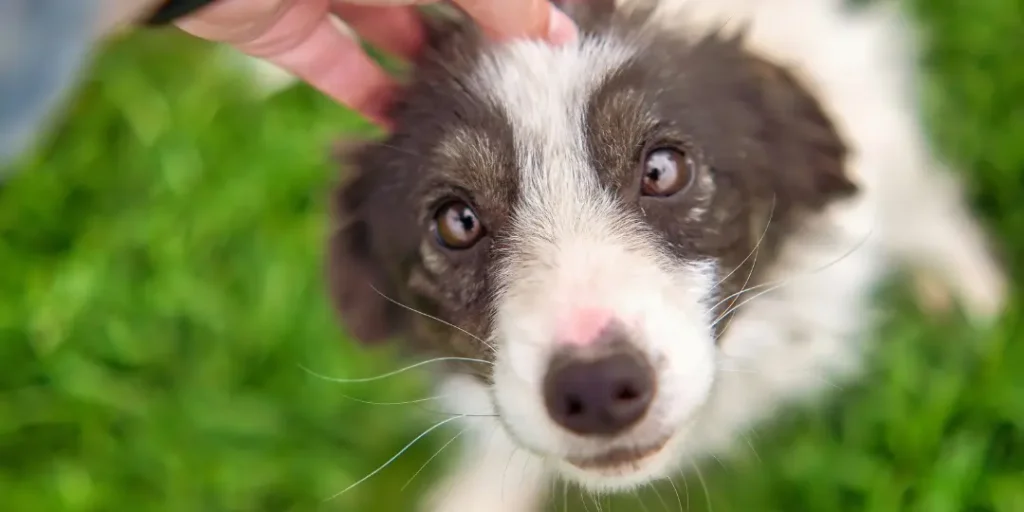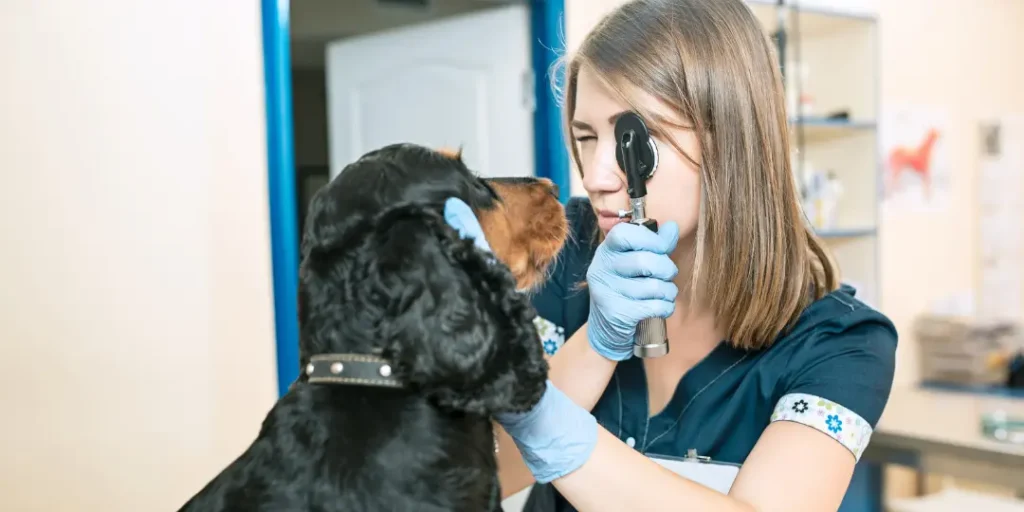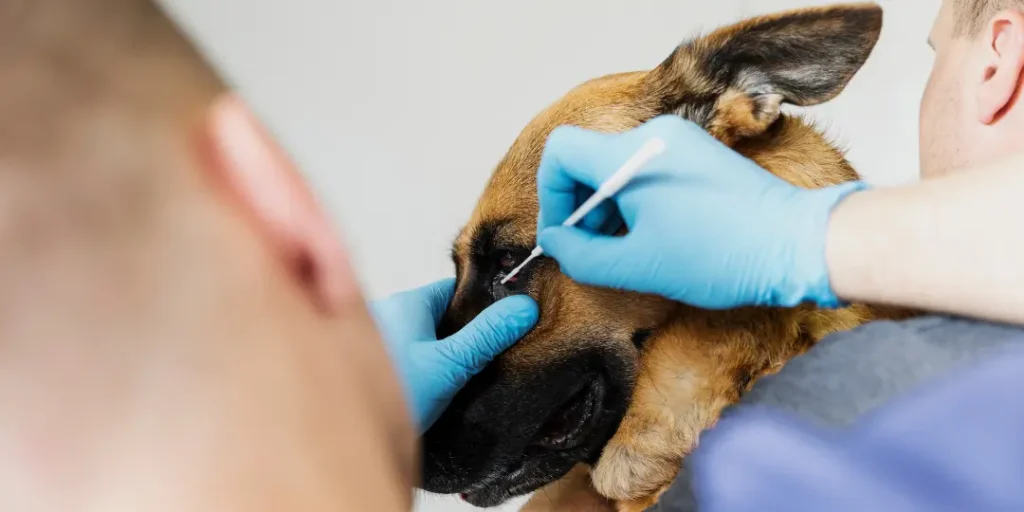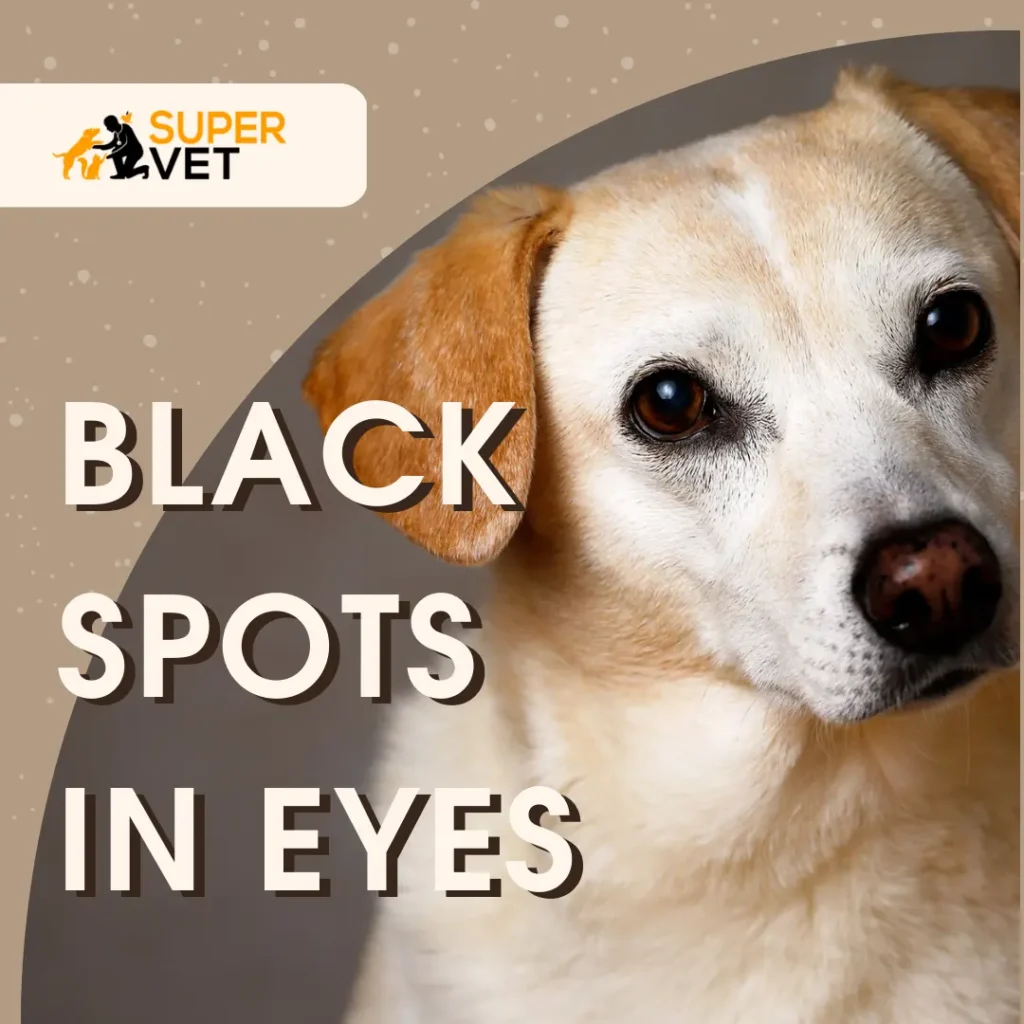Black spots in the eyes of dogs can indicate a few distinct eye conditions, from harmless iris freckles and cysts to more serious melanomas. While some puppies may be born with them, many affected dogs develop these spots over time. Certain types of black dots are painless and cause little harm to vision, while others may come with other symptoms that make dogs uncomfortable. It is important to note that not all black spots require treatment; however, if your dog has any changes in their vision or discomfort around the area it is best to consult a veterinarian for further evaluation.
Brownish to dark black spots, freckles, or discs on the iris may seem small and insignificant but could be a sign of an eye condition. These discolorations can range from barely noticeable to covering part of the pupil, so it’s important to have them checked out by an ophthalmologist in order to prevent any potential vision loss.
Cause of Black Spots:

There can be various causes of black spots in a dog’s eyes. Here are some of the most common causes:
- Aging: Just like people, dogs can develop age-related changes to their eyes. Including pigmentation changes that result in black spots or freckles.
- Genetics: Some breeds are more prone to developing pigmented spots or freckles on their iris. For example, many breeds with dark-colored furs, such as Labradors and Rottweilers, may have pigmented spots on their eyes.
- Cataracts: Cataracts are a common cause of black spots in dogs’ eyes. As the lens becomes cloudy, it can cause the appearance of black or cloudy spots in the eye.
- Melanoma: In rare cases, a black spot in a dog’s eye can be a sign of melanoma, a type of cancer that can develop in the eye.
- Other eye conditions: Certain eye conditions, such as glaucoma or uveitis, can cause black spots or discoloration in a dog’s eye.
If you notice any changes in your dog’s eyes, including the appearance of black spots. It’s important to have them evaluated by a veterinarian to determine the cause and appropriate treatment.
Symptoms of Black Spots :

Black spots in a dog’s eye may or may not cause any symptoms, depending on the underlying cause. Here are some possible symptoms that may be associated with black spots in a dog’s eye:
- Changes in vision: If the black spots are caused by cataracts, the dog may show signs of vision loss. Such as bumping into things, hesitance to move around or jump up, or difficulty seeing in low light.
- Eye discharge: Some dogs with black spots in their eyes may have discharge or tearing. Which may indicate an infection or other underlying eye conditions.
- Squinting or rubbing the eyes: If the black spots are causing discomfort or irritation in the eye, The dog may squint or rub at their eyes.
- Behavioral changes: In some cases, dogs with black spots in their eyes may exhibit changes in behavior. Such as becoming more lethargic, withdrawing from social interaction, or seeming to be in pain.
If you notice any of these symptoms in your dog, it’s important to have them evaluated by a veterinarian to determine the underlying cause and appropriate treatment.
Diagnosis of Black Spots:

The diagnosis of black spots in a dog’s eyes will depend on the underlying cause. Here are some common steps a veterinarian may take to diagnose black spots in a dog’s eyes:
- Physical exam: The veterinarian will start by performing a physical exam to look for any visible signs of eye problems, including black spots or discoloration.
- Eye exam: The veterinarian will use special tools and techniques to examine the dog’s eyes. Including a slit lamp and ophthalmoscope. This can help identify any changes to the lens or other structures in the eye.
- Tests: In some cases, the veterinarian may perform additional tests. Such as blood work or imaging tests (like x-rays or ultrasound), to help diagnose underlying health conditions that could be contributing to the black spots.
- Biopsy: If there is concern that the black spots could be a sign of cancer. The veterinarian may recommend a biopsy to collect a sample of the affected tissue and send it for analysis.
Based on the results of these tests, the veterinarian can make a diagnosis and recommend an appropriate treatment plan. It’s important to seek veterinary care if you notice any changes to your dog’s eyes. Including the appearance of black spots, as prompt diagnosis and treatment can help prevent further complications and preserve your dog’s vision.
Treatments of Black Spots:

The treatment for black spots in a dog’s eyes will depend on the underlying cause. Here are some possible treatments:
- Observation: If the black spots are benign and not causing any problems. The veterinarian may simply recommend monitoring the dog’s eyes to make sure the spots don’t change or become more prominent.
- Medications: If the black spots are caused by an infection or inflammation. The veterinarian may prescribe medications such as antibiotics, anti-inflammatory drugs, or eye drops to help reduce symptoms.
- Surgery: If the black spots are caused by cataracts or other eye conditions that are affecting the dog’s vision. Surgery may be necessary to remove the cataract or treat the underlying condition.
- Radiation or chemotherapy: In rare cases where the black spots are caused by melanoma or other types of cancer. Radiation therapy or chemotherapy may be recommended.
It’s important to have any changes in your dog’s eyes evaluated by a veterinarian. As prompt treatment can help prevent further complications and preserve the dog’s vision.

